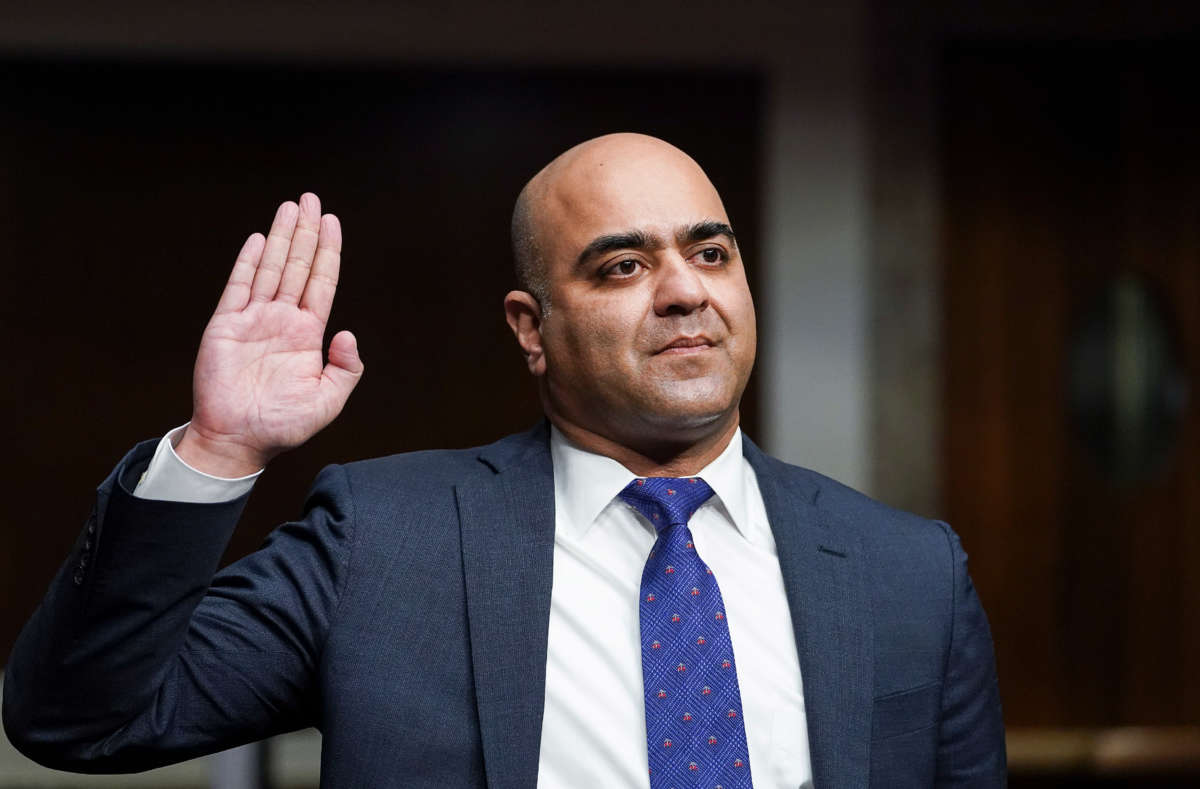The United States Senate has confirmed the nomination of Zahid Quraishi for U.S. District Judge for the District of New Jersey, becoming the first Muslim-American federal judge in the country’s history.
Quraishi was confirmed in an 81-16 vote on the Senate floor on Thursday.
“Today, the Senate will make history with the confirmation of Zahid Quraishi,” said Sen. Dick Durbin (D-Illinois), chair of the Senate Judiciary Committee. “He will be the first American Muslim in history to serve as a life-tenured federal judge.”
There are around 900 federal judge positions in the United States. Adherents of Islam make up around 3.45 million or more of the U.S. population, which means that if the federal judiciary was representative of the country’s Muslim population, there would be around nine or 10 Muslim judges on those benches at this time.
Quraishi is the son of immigrants from Pakistan. He was appointed to a U.S. Magistrate judge position in June 2019. And he is just the third judicial nominee by President Joe Biden to be confirmed by the Senate.
Some Muslim-American legal scholars took issue with his nomination, noting that Quraishi served as a “detention advisor” during his two tours in Iraq in 2004 and 2006, a time when the U.S. was torturing detainees in degrading and lethal ways. His work with ICE also troubled critics.
A former Muslim-American elected official from New Jersey, speaking to Slate anonymously about Quraishi, said that he was not the right person to be nominated to become a federal judge.
“I believe it’s the wrong guy,” the official said. “We don’t know what his stances are on civil rights because you can’t find one article or anything that he’s written publicly about the Muslim struggle in the last 20 years post-9/11.”
During the nomination hearings, Durbin asked Quraishi, stating that he was “almost embarrassed” to bring the topic up, about “Sharia Law,” saying it was something that would likely “come up at some point.”
Quraishi answered that he didn’t “know anything about it” — a response that drew criticisms from Islamic law experts.
“The perfect response to it is that it’s a ridiculous question. Of course, a Muslim can serve his country and practice his religion, and to say otherwise is bigoted,” said Robert McCaw, government affairs director for the Council on American-Islamic Relations (CAIR).
Quraishi was trying to show “that he is a ‘good Muslim’ who doesn’t know about Sharia,” opinied attorney Abed Awad, who previously was an adjuct professor at Rutgers Law School.
“This has nothing to do with religiosity,” Awad added. “An atheist who happens to be of a Muslim background or non-religious Muslim can answer the Sharia question with respect, thoughtfully, and defend his community.”
5 Days Left: All gifts to Truthout now matched!
From now until the end of the year, all donations to Truthout will be matched dollar for dollar up to $50,000! Thanks to a generous supporter, your one-time gift today will be matched immediately. As well, your monthly donation will be matched for the whole first year, doubling your impact.
We have just 5 days left to raise $50,000 and receive the full match.
This matching gift comes at a critical time. As Trump attempts to silence dissenting voices and oppositional nonprofits, reader support is our best defense against the right-wing agenda.
Help Truthout confront Trump’s fascism in 2026, and have your donation matched now!
